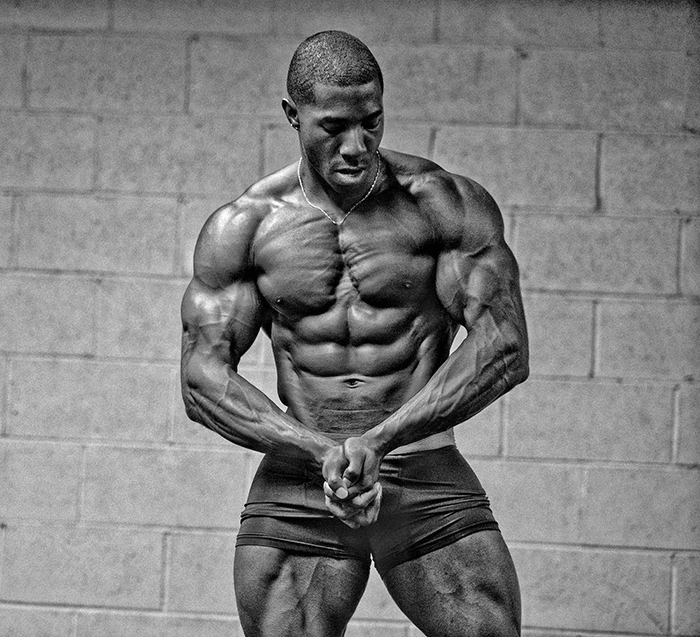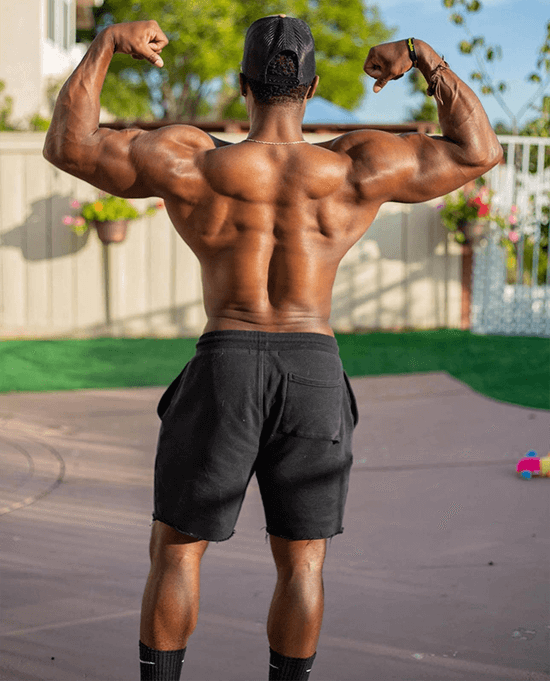How bodybuilding turned Patrick Fulgham's life around
In a few weeks, two-time Olympia champ Patrick Fulgham will set foot in Manila to headline the Musclecontest Philippines produced by Tamer El-Guindy.
Bodybuilding athletes from around the world are expected to converge at the Grand Ballroom of Novotel Manila in Araneta City on Oct. 26.
We asked Patrick several questions as a prelude to his arrival in the country. He will be joined by fellow Olympians Tamer El-Guindy and Jennifer Lau.
THE PHILIPPINE STAR: How did you get into bodybuilding?
PATRICK FULGHAM: Growing up, I was extremely shy and introverted. I was bullied. I was always smaller and hesitant to speak up for myself. However, something shifted when I got involved in sports. It became clear that when you’re fed up with your situation, you have to take action or risk stagnation. After completing my undergraduate degree in psychology at a small private school, I pursued two master’s degrees.

A realization struck me: life is precious, and it’s up to us to shape it. We can either adopt a victim mentality or choose resilience and actively create the life we desire. I grew up in Virginia Beach as a military brat and moved to San Diego in 2008. I’ve lived in various places due to my parents’ military service, including Washington, DC, Denver, Colorado and Florida.
My parents emphasized the importance of exposing myself to different people and cultures, learning languages, and trying diverse foods. As a middle child, I felt sheltered, but once I had the chance, I began exploring the East Coast from Florida to Rhode Island. My parents, who celebrated their 50th wedding anniversary two years ago, have always been a significant foundation for me. Their military background instilled discipline—waking up early, preparing clothes for the next day, and making my bed.
These habits have remained with me through my life. This discipline translated into my involvement in bodybuilding, where I’ve competed on the Olympia stage twice. I also write children’s books, conduct speaking engagements, and participate in home-building projects in Tijuana, along with serving as an NPC judge.

Was it an easy path to Olympia?
Not really, but faith plays a central role in my life. Despite facing mishaps and turmoil, I believe in resilience and the power to persevere. I’ve never given up, and I truly believe everyone can overcome their challenges and succeed. I began competing in the NPC, or National Physique Committee, in 2013 with an incredible coach.
A lesson my dad instilled in me was the importance of hard work; he always said the worst company is a lazy person. This idea resonated with me, especially considering that most of my friends are immigrants who have worked tirelessly to build their families’ futures. Their hard work reinforces the belief that effort leads to success. When people see you striving to improve yourself, they’re more willing to help.
Networking is crucial. So, after starting my competitions in 2013, I turned pro in a year and a half and joined the IFBB, or International Federation of Bodybuilding. I qualified for the Olympia in my first pro year but suffered a ruptured patella tendon in my left knee during a basketball game in 2015. It took about six months to recover, but I returned to the Olympia stage in 2016. After that, I was invited to judge for the NPC and IFBB, even traveling to Erbil, Kurdistan, to judge, which has kept me connected to the industry. And soon, I will be in Manila!
What is the biggest takeaway from competing?
In competitions, I sometimes find it frustrating when people say it’s just “you versus you.” Yes, there’s personal growth involved, but we are also competing against others. It’s important to acknowledge that competition exists and to strive to outperform those around you. I compete and aim to be better than I was yesterday. I set daily goals and an agenda every night for the following day to ensure I’m focused. While I remain open to unforeseen circumstances, I try not to let them distract me from my agenda. Maxwell often says, “Success is determined by the daily agenda,” and I believe that’s true in any endeavor.
How long do you prepare to get ready to compete?
My initial coach gave me just four weeks to prepare for my first show, and I ended up qualifying to compete nationally in Chicago. From there, I went on to compete in Las Vegas, Florida and Pittsburgh, where I eventually turned pro. Those experiences weren’t failures; they were invaluable learning opportunities. They allowed me to network, travel, and engage with different cultures at various competitions. Life is about experiences, and this journey was not only enjoyable but also helped me improve physically. I thought, “I want to be the best at this,” so I set my agenda to obtain my pro card and reach the Olympia stage, which I achieved.
What advice can you give to aspiring Olympians?
To keep moving forward, it’s vital to stay true to yourself. The comparison game can be detrimental; there will always be someone bigger, stronger, or faster. I promised my parents I would never resort to drugs or injections to achieve my goals, and I held to that vow when I made it to the Olympia. Setting goals and writing them down is crucial. It’s beneficial to check them off and reward yourself for small victories; they can have a significant impact. Whether it’s treating yourself to a cheat meal or taking time to celebrate achievements, daily rewards are important.
Lastly, having something bigger than yourself to believe in is essential. For me, that’s God. It provides grounding in everything I do. For me, prioritizing is essential. I avoid taking calls or replying to messages until I’ve accomplished my tasks for the day. I typically wake up at six in the morning. My routine starts with prayer, followed by making my bed and personal hygiene. After that, I jump rope and practice meditation through breathing exercises. Everything is planned by the hour; time is crucial for me.
When I go to the grocery store, I always bring a list. I stick to the same store to save time, and I give myself 20 minutes to get everything I need. I resist temptations, avoiding distractions like ice cream aisles, so I don’t end up spending money on things I don’t need. It’s about staying focused on my agenda to prevent a domino effect of wasted time and resources.
From what I’ve observed, people with purpose and structure are the happiest because they feel they’re making progress every day. In contrast, those without direction often express dissatisfaction and frustration. You can choose to live for pleasure or purpose, and I believe discipline is key to maintaining that purpose. Enjoying life can sometimes mean exercising restraint for long-term fulfillment.


